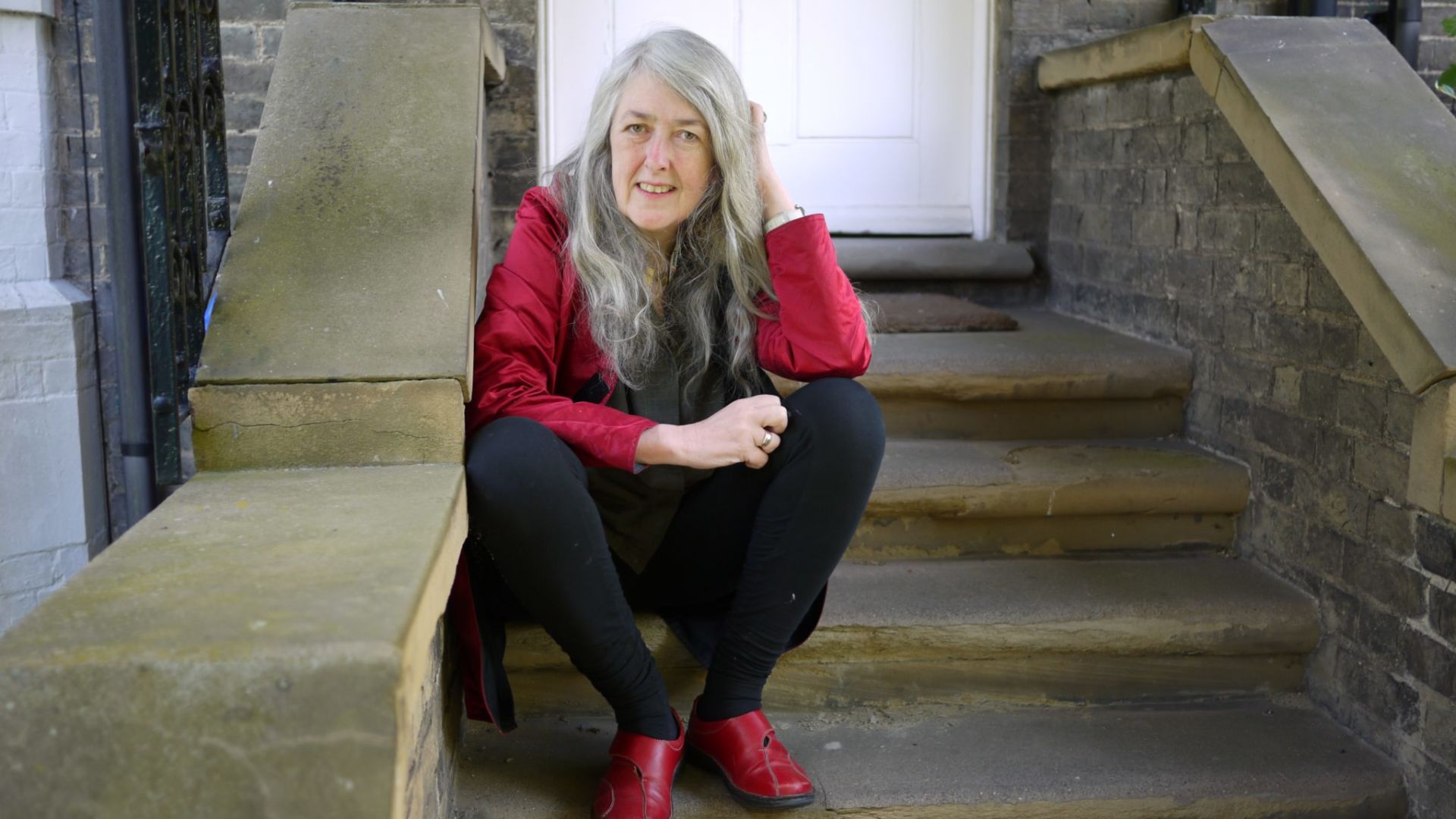‘The Romans muzzled women too’
-
 Mary Beard. Photo: Robin Cormack
Mary Beard. Photo: Robin Cormack
Although she receives the occasional death threat, she’s more often praised for her knowledge of the ancient world. Since the publication of her manifesto Women and Power, she’s regarded in the Western world as an outspoken feminist. In October, the British classicist Mary Beard will receive an honorary doctorate from Radboud University.
‘Oh really?’ she says. ‘Are 27 percent of the professors at Nijmegen women? Many British universities come no way close to that.’ Mary Beard nods approvingly as her long grey hair sways up and down. In Nijmegen she can easily walk down the street, but in her own country she’s a celebrity. She stars in TV series for the BBC in which she wanders in silly trainers through classical Rome with a camera in her wake. She makes antiquity tangible and reaches a wide public with what are sometimes hilarious parallels between life then and now.
‘I haven’t received a death threat in some time now’
The Dutch translation of her latest book, Women and Power, was published at the beginning of this year. The manifesto became a bestseller in both Great Britain and the US. Why? She shows that in anno 2018 women still have to make an effort to be heard and that the basis for this was laid in antiquity. The Romans muzzled women. Literally. For example, in his Metamorphoses Ovid describes how princess Philomena is raped. To prevent her from making a complaint, her assailant cuts out her tongue. The myths of ancient Greece and Rome still echo in today’s art and literature. Without our being aware of it, this has caused a certain image of men and women to nestle in our system, claims Beard in her book. ‘The classical balance of power between men and women finds its roots in our Western cultural DNA,’ she states.
As a woman and a professor at Cambridge, Beard has a long experience of this sensitive theme. Although she has many fans, she also has many haters. People put the most horrible posts on Twitter (about 200,000 followers), many of them from men who write that they want to attack her with their member or even wish her dead. In other words: they want to gag her, in good Roman tradition. ‘But at the moment, things are fine,’ she says dryly. ‘I haven’t received a death threat in some time now.’
Caregiving
In her manifesto Beard shows that the problems of ‘too few women at the top’ and ‘not listening to women’ have much deeper roots and thus can’t be solved so easily. ‘I had always thought that we were talking about a practical problem,’ the classicist says. ‘That is was a matter of arranging a maternity leave and organising child care. But now I know that the problem is deeper. It’s about what’s in our psyche.’
When still a young academic, Beard had two children. Her life, as she describes it, was ‘mad’. Teaching, going home to breastfeed, back to the university, attending seminars in the evening… Yes, she fully agrees, ‘women have to work a lot harder to climb the academic ladder.’ Not only because they also have to care for the children, but because women are automatically asked for extra tasks such as advisor or supervisor. ‘Caregiving tasks. But they don’t help you to rise higher in academia. You have to write, to publish!’
 How did Mary Beard manage to be heard within the university’s male bastion? ‘In the first few years I didn’t say much when, for example, I attended a seminar. That was true of most of the women since we were definitely in the minority. And if I did open my mouth – it wasn’t as if I had nothing to say – the words were often clumsily formulated. Or my remarks were followed by a painful silence, and then the men just continued the discussion.’
How did Mary Beard manage to be heard within the university’s male bastion? ‘In the first few years I didn’t say much when, for example, I attended a seminar. That was true of most of the women since we were definitely in the minority. And if I did open my mouth – it wasn’t as if I had nothing to say – the words were often clumsily formulated. Or my remarks were followed by a painful silence, and then the men just continued the discussion.’
The women decided to form an alliance. They agreed to never again let that kind of silence fall. ‘“She has a good point,” we’d say at a meeting.’ But the real improvement occurred when she discovered her own voice. ‘When I started talking like myself, I became more self-confident. I’d actually been trying to imitate the men. Also in my teaching: I’d always tried to imitate men whom I admired. I was a sort of actress.’
Her advice to ambitious women is: find your own voice. In her book she describes how women wrestle with this. They don’t know anything better than to become a sort of man. Margaret Thatcher took lessons in lowering her voice, and Angela Merkel prefers to wear pantsuits in public.
Carbonised cake
Beard doesn’t have the key to being heard as a woman-woman (without imitating men). ‘I myself have done things that every manual says you shouldn’t do. Like bursting into tears at a meeting. In the course of my career, I started to feel better about this and I realised that perhaps the mistakes I made weren’t mistakes at all.’ Naturally, it also helps that the number of women in academics is increasing. If there are enough women, they’ll be taken seriously. In the preface to her book she writes: ‘My mother was born when women in Great Britain still could not vote.’ A lot has changed since then.
However, she doesn’t think that this inequality will disappear by itself as time passes. More has to be done. She tries to make her students aware of unconscious thought processes. In language, for example. ‘Look at the word ‘ambitious’. If that’s applied to a man, we associate it with something good. He’s doing his best! But when we use if for a woman, we think she’s a bitch that we have to be wary of.’
‘I myself have done things that every manual says you shouldn’t do’
Her mother was a feminist avant la lettre, Beard says. In the 1950s she was the head of a school and she entered into local politics – the apple doesn’t fall far from the tree in Beard’s case. Her mother was also the one who introduced her to antiquity. ‘I was about five when she took me to the British Museum in London. I was already interested in old things and excavations. In the museum, my mother lifted me up so I could look into a display case containing a piece of carbonised cake from the ancient Egyptians, 3500 years old! A man with a key came especially for me to take the cake out of the case so I could have a better look. That was so wonderful.’
She opens her eyes wide and says that she’s never forgotten that moment. What’s more, in a certain sense the books that she writes and the TV series that she makes are a form of paying back the favour. She considers it her duty to open display cases for a wide audience. Her own scientific research are the means to that end. ‘It keeps me sharp.’
Beard is currently working on a new series for the BBC, The Nude Uncovered, in which she looks at the influence of nudity in the arts on our contemporary perception of beauty and gender politics. In recognition of all of her achievements, Beard was crowned a ‘Dame’ (the female equivalent of a ‘Knight’) by Queen Elisabeth last June. And on 18 October she can add the title of honorary doctor of Radboud University. She laughs: ‘Then my life will be complete.’



